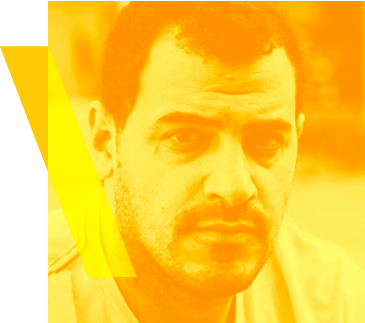Retour à Bollène
Starting point
Film. His parents have come from Morocco to work in France, he preferred to emigrate to the Emirates. Back to Bollène, he goes back to this peripheral France that has no more to offer him. Presentation.
By Jacques Braunstein

Nassim was a brillant student, like many French coming from immigration he chose to leave the country after his studies. Now he works in finance in Abu Dhabi. For his sister’s engagement party, he comes back to Bollène where he grew up. An economically devastated city passed into the hands of the Southern League, the political part created by Jacques Bompart following the “refocusing” of the “Front National”.
“This is not La Haine or Le monde est à toi, this is actually quite the opposite.”
He sees his brothers and sisters, his mother, old friends, and even a communist teacher again, who had helped him and became a far-right municipal councilor.
Retour à Bollène is the first feature film directed by Saïd Hamich, producer of Much Love, Ni le ciel ni la terre or Vent du nord recently released. He lived himself in Bollène for a few years. « There are pavilions where live the French and towns where reside Moroccans. Between that, you will find some maintained roads and commercial areas. That’s it. » he explains in the press kit. The film performs to make palpable this confinement of everyone in his box, his role, his community… Nassim goes from a zone to another in his rental 4X4 Audi that also locks him into his neo-bourgeois status. He speaks little, Amas El Baz, the actor, does not try to make him pass for a nice character. The movie is harsh, tense, not particularly optimistic or emphatic with its characters. We even come out a little disappointed. And then, when we think about it, we realize that everything is said with an economy of means and a rare elegance for the sens of ellipse.
This is not La Haine or Le monde est a toi (the new Romain Gavras’s film about suburbs on theaters on August 22). This is actually quite the opposite, a feature film in the same vein as those of Jean-Pierre and Luc Dardenne or Ken Loach, but clear from their rhetoric not that effusive.


